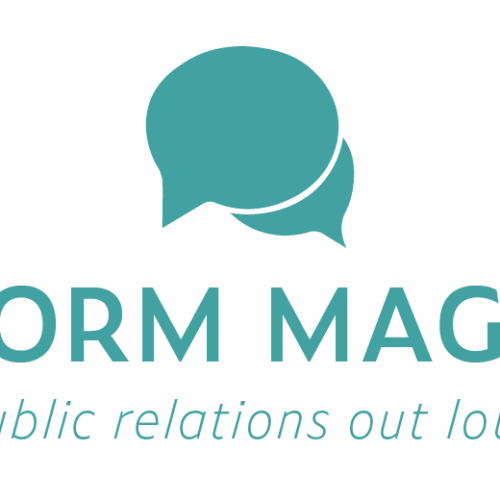Answering PR Questions from Your Friends and Relatives
Published on December 24, 2021, at 10:05 a.m.
by Rachel Summers, Guest Contributor.
Does this scenario seem familiar?

You travel home for the holidays, excited to see family and friends. You find yourself in a conversation with some obscure uncle, and this classic conversation starts: He asks what you’re studying; you say PR, and he asks if that means personal resources. You clarify that it stands for public relations, and another family member asks the dreaded question: “What is public relations?” It’s a simple question, but PR can seem really abstract.
Why try to explain PR?
Explaining the purpose and value of PR is an important tenet of being a communications professional. Just like PR professionals work to establish broad understanding and credibility for their clients, the same duty should be felt to cultivate understanding and credibility for the field. Robert Wynn wrote in a Forbes article, “The public relations industry does a terrible job of public relations. Very few people can explain what people in public relations really do.”
So, how can we answer questions about PR with confidence and clarity? Follow these tips to show the know-how that will even satisfy your nosy Aunt Caryn.
“So, what is PR?”
You may be tempted to brush this question off, saying that PR is a broad field and can look like all kinds of careers. While this is true, it’s not a very satisfying answer. Another option is to give a rote definition, but let’s get to PR’s core.
Kenneth Plowman, associate professor of communications at Brigham Young University, weighed in on the topic. “I think if you give your friends and family a definition of PR straight out of the textbook they wouldn’t quite get the message,” he said. “The most important part is making it clear that as PR professionals we communicate between an organization and its audience, making sure that they understand us and we understand them.”
This stress on mutual understanding and beneficial communications can seem abstract, but we’ve all seen successful PR at work, whether we knew it or not. Remember “Hands Across America” or the Live Aid concerts in the 80s? Organizations using powerful messages to gain understanding and change behavior is PR at its core. Of course, these communications can look vastly different, but having some concrete examples up your sleeve will make all the difference when explaining what PR really is.
“What do you want to do with PR?”
More often than not, once you’ve been asked what PR is, you’ll be asked what you want to do with it. Nobody expects you to know exactly where you’ll end up, but the people in your life certainly want to support your dreams. Don’t hesitate to begin dreaming now! Plowman suggested getting experience early by volunteering to provide PR services in exchange for a peek into the professional world.
“If you’re just starting out, you may not be able to get a paid internship, but you can always volunteer,” Plowman explained. “Most places need help, and if it’s free they’re willing to accept help from anyone. That will give you enough track work to get paid, and if you like it, you can open doors for your career.”
By volunteering in different organizations, you can narrow down career paths to find what really suits you. Your answer to the question, “What would you like to do with PR?” may change throughout your education, but you’ll never regret putting in the time to figure out your passion.
“Isn’t PR kind of sketchy, like just pulling publicity stunts?”
You may not be asked this question directly (or worded this way,) but it’s no secret that many people have a negative perception of PR professionals, or similar job titles like publicist, press secretary or public affairs official. The Professional Associations Research Network published a 2020 study finding that only 11% of the public believes that PR professionals are trustworthy, and only 16% of the public believes that PR pros are ethical. While these statistics are disheartening, they hopefully do not reflect the truth about the industry.
Ethical communication practices are taught at most universities, and PRSA has published a clear code of ethics that states “each of us sets an example for each other — as well as other professionals — by our pursuit of excellence with powerful standards of performance, professionalism and ethical conduct.”
You probably can’t single-handedly reverse skepticism or distrust of public relations, but showing confidence and expertise in the field, as well as acting ethically yourself, is a start.
The public relations field is exciting and ever-changing, and starting professionals have the opportunity to expand the field and establish credibility before they even join the workforce. Communicating about your education and aspirations clearly and simply will give your friends and family confidence in your field of study and future. Your Aunt Caryn will have to find another cousin to complain about this year.




